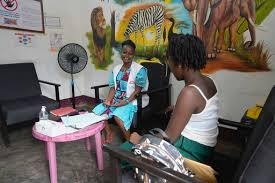UN Peacekeepers, Wagner Accused of Rapes in Central African Republic

Gender-based violence is rising in Central African Republic amid violence, weak legal and care systems and the stigma of speaking up, locals and aid groups say.
Since 2020, incidents have jumped from about 9,200 reported cases to 25,500, according to cases tracked by the United Nations and partners.
Three women said they had been sexually assaulted. One blamed Wagner. One blamed an armed bandit. One, a security guard, blamed a UN peacekeeper.
She asked her supervisor to be transferred to another house but never reported the attack. Her pastor cautioned against it to keep her job.
The UN mission didn’t receive any allegation of sexual assault involving its personnel last November, spokesman Vladimir Monteiro said, and stressed that the UN takes such allegations seriously.
The UN has long wrestled with allegations of sexual assaults by UN peacekeepers in Central African Republic and elsewhere. Three years ago, the secretary-general ordered the immediate repatriation of the entire UN Gabonese peacekeeping contingent following credible reports of sexual abuse.
The government’s justice ministry didn’t respond to requests for comment. The new constitution has measures to tackle the issue, saying authorities must ensure that sexual assault is eliminated.
But that comes as little comfort for survivors.
In December, a 29-year-old woman said she was assaulted at a market about 124 miles (200 kilometres) from Bangui. Three men with knives and machetes robbed her and one raped her.
She didn’t report it because she didn’t know the man and thought police would refuse to investigate.
Now the mother of two wants to move on. She finds comfort in a programme run by Doctors Without Borders, meeting weekly with a dozen other survivors.
“The advice I’ve been given is not think about the aggressor and to stay busy,” she said.
A survivor of sexual assault told the AP that two masked and armed Russian fighters burst into her home two years ago, held her at gunpoint and took turns raping her. Her five children were forced to watch in the dark.
Seated in a restaurant in Central African Republic’s capital, where she has since fled, she wiped away tears.
She blamed the Wagner mercenary group that operates alongside Central African Republic’s army. Locals and rights groups of abuses have also accused them. She had seen them patrolling in her town of Bambari before. On the day of the assault, they were fighting rebels there.
International funding for the country has dropped, with gender-based violence receiving some of the least support. The humanitarian request for about $14 million received less than 15 percent of that, according to the UN.
Central African Republic has been in conflict since 2013, when rebels seized power and forced the president from office. A 2019 peace deal between rebels and predominately Christian militias only lessened the fighting, and six of the 14 armed groups that signed later left the agreement.



